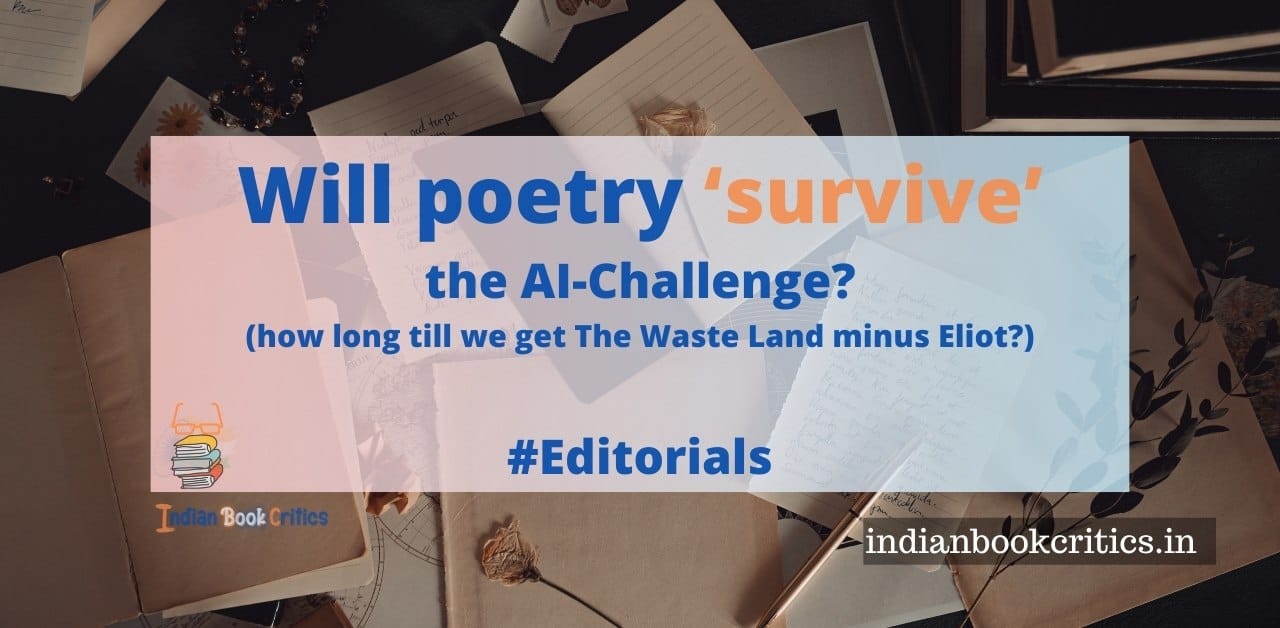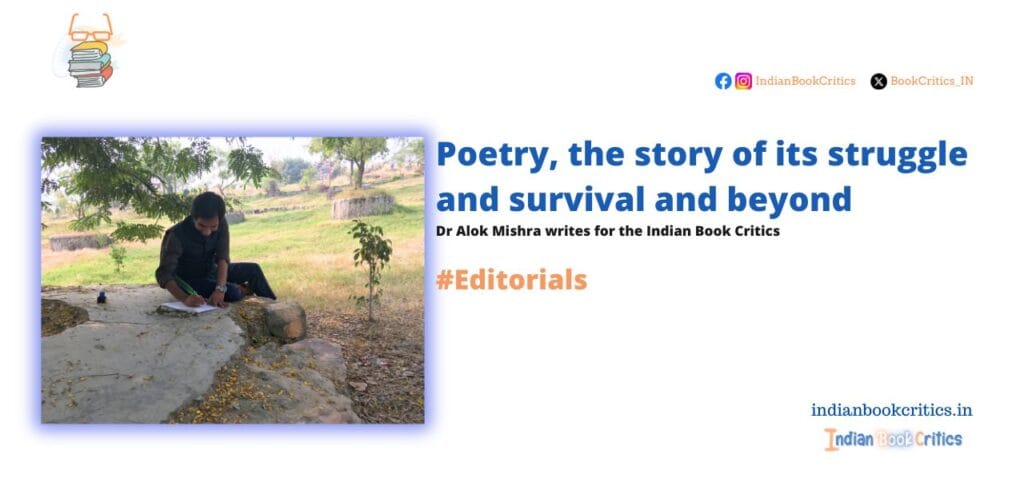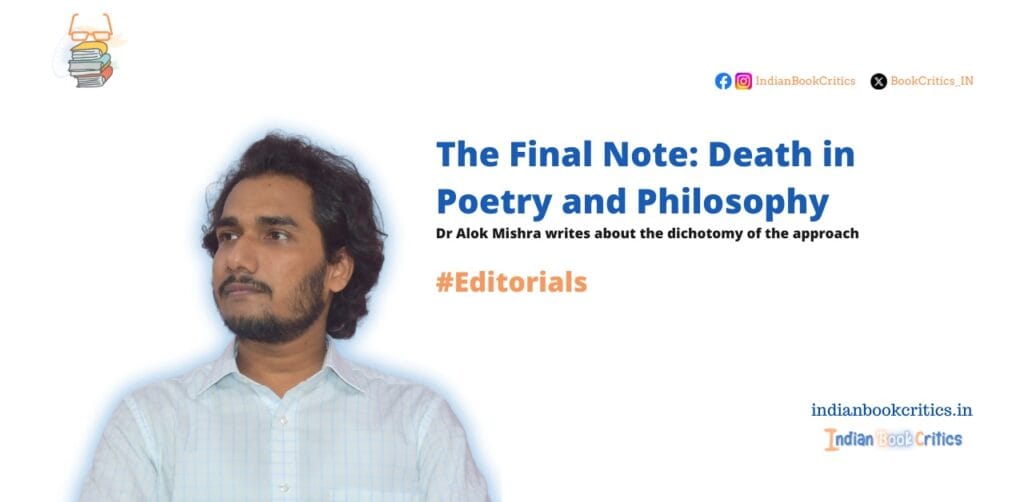Is poetry still relevant in an age dominated by artificial intelligence? As technology continues to redefine how we create and consume content, the role of poetry might seem uncertain. Machines generate poems, mimic artistic styles, and analyse literary works accurately. Yet poetry has always been more than just the arrangement of words—it has been a vessel for human emotion, cultural memory, and intellectual exploration. Even in an age of AI, poetry retains a significance that cannot be easily replaced.
Having spent over two decades immersed in poetry, both as a reader and now as someone who closely follows AI-generated verse, I have seen firsthand how human poetry continues to defy mechanisation. The best poetry is deeply personal, an intricate weaving of individual memory, cultural context, and linguistic mastery. It is as much about what is left unsaid as what is spoken. AI may construct lines resembling poetry but does not feel longing, grief, or joy. It does not dream, reminisce, or fear the unknown. This raw vulnerability, this ability to articulate the inarticulable, belongs to human poets.
Poetry has also been a keeper of history, carrying voices across generations and preserving the essence of cultures and eras. From the epics of Homer to the verses of resistance movements, poetry has documented struggles and triumphs that define human civilisation. In a time when digital media reduces information to rapid, fleeting bursts, poetry provides a space for reflection and depth. It demands slowness, invites contemplation, and refuses to be diluted by the speed of modern life.
AI, however, is not merely an external force pressing against poetry—it is also shaping it. The emergence of AI-generated poetry has sparked conversations about authorship, creativity, and artistic integrity. Programs like OpenAI’s GPT-4 and Google’s Bard can generate verse in seconds, often producing lines that mimic well-known poetic styles with impressive coherence. These models analyse vast poetry corpora, identify patterns, and predict what words should follow. But does this constitute true creativity? AI has already won if poetry is merely about arranging words in aesthetically pleasing patterns. But if poetry is an act of discovery, of wrestling with meaning and emotion, then AI falls short. The essence of poetry is not just in the words themselves but in the lived experience that gives those words depth.
The broader question appears every time we try to subdue it with self-satisfying consolations. Will AI replace the bard? Will the new Waste Land be devoid of the poet, too? Eliot consciously kept his masterpiece devoid of emotional herbs and instead used harsh and callous emotional outbursts; however, there was an Eliot. In future, can it be possible to have The Waste Land without an Eliot? And yet, the poetic output shining with the same silver sentences? Who knows? Many seldom find any difference between AI mimicry and genuine Wordsworthian rainbows and rains! That’s the sad part we have to live with. However, can any subtle difference help readers differentiate between the artificial and the original?
On a cognitive level, engaging with poetry enhances linguistic dexterity and deepens intellectual engagement. Neuroscientific research has shown that poetry activates areas of the brain linked to introspection and creativity, fostering a kind of mental flexibility that is difficult to achieve through more straightforward prose. A study published in Frontiers in Psychology found that reading poetry stimulates the brain’s default mode network, associated with self-reflection and emotional processing. AI may generate poetry, but it does so by analysing patterns, not by experiencing the interplay of thought and emotion that makes each human poem distinct.
Yet, AI’s growing role in the creative process cannot be ignored. Algorithms can now produce poetry that is, at times, indistinguishable from human work. With vast datasets at their disposal, AI models analyse poetic structures, mimic styles, and generate lines that adhere to established literary traditions. Some argue that this renders traditional poetry unnecessary. If machines can compose sonnets or haikus in milliseconds, does the human poet still have a place? The way people consume art is also changing. Social media has encouraged a shift toward short-form, instantly digestible content. While poetry has adapted—finding new life in digital formats and spoken word performances—it competes with AI-generated content that is increasingly indistinguishable from human creation. Some fear that as AI-generated literature becomes more widespread, the personal touch that defines poetry may be lost in favour of mass-produced verse.
But poetry has continuously evolved in response to technological shifts. The printing press, the typewriter, the internet—each of these innovations altered how poetry was written and shared, yet none made poetry obsolete. AI may be the following transformative tool, but it does not spell the end of poetic expression. Instead, AI-generated poetry might mirror the patterns and cadences we have subconsciously absorbed from centuries of poetic tradition. It forces us to ask: What is poetry’s true essence? If AI can mimic form without feeling, what does that say about how we define poetic authenticity?
Moreover, AI is not just a competitor—it can also be an enabler. Many contemporary poets now use AI as inspiration, allowing it to generate initial lines or suggest unconventional word pairings that might not have occurred naturally. Some treat AI-generated poetry as raw material, shaping and refining it to create something uniquely human. In this sense, AI does not replace the poet but offers a new medium through which creativity can flow. Just as photography did not replace painting but expanded artistic possibilities, AI may do the same for poetry.
Even as AI poetry becomes more sophisticated, human poetry retains its irreplaceable qualities. The best poetry does not merely follow the rules; it subverts them, plays with expectations, and creates new ways of seeing the world. It is deeply tied to personal and collective history, the weight of experience, and the ineffable feeling of being alive. A machine can simulate rhythm and rhyme, but it cannot write about the first touch of a lover’s hand, the scent of childhood summers, or the quiet grief of watching a parent age. AI may be able to approximate poetic structure, but it cannot embody poetic soul.
So, is poetry still relevant in the age of AI? The answer is not a simple yes or no. Poetry is not disappearing; it is adapting as it always has. The poet’s role may shift, and the tools available may expand, but poetry remains a uniquely human endeavour. Its utility is not found in its ability to compete with machines but in its ability to remind us of our humanity. Poetry does not exist merely for efficiency or replication; it exists to make us pause, reflect, and feel. In that sense, no algorithm, no matter how advanced, can take its place.
Vyom for the Indian Book Critics platform




